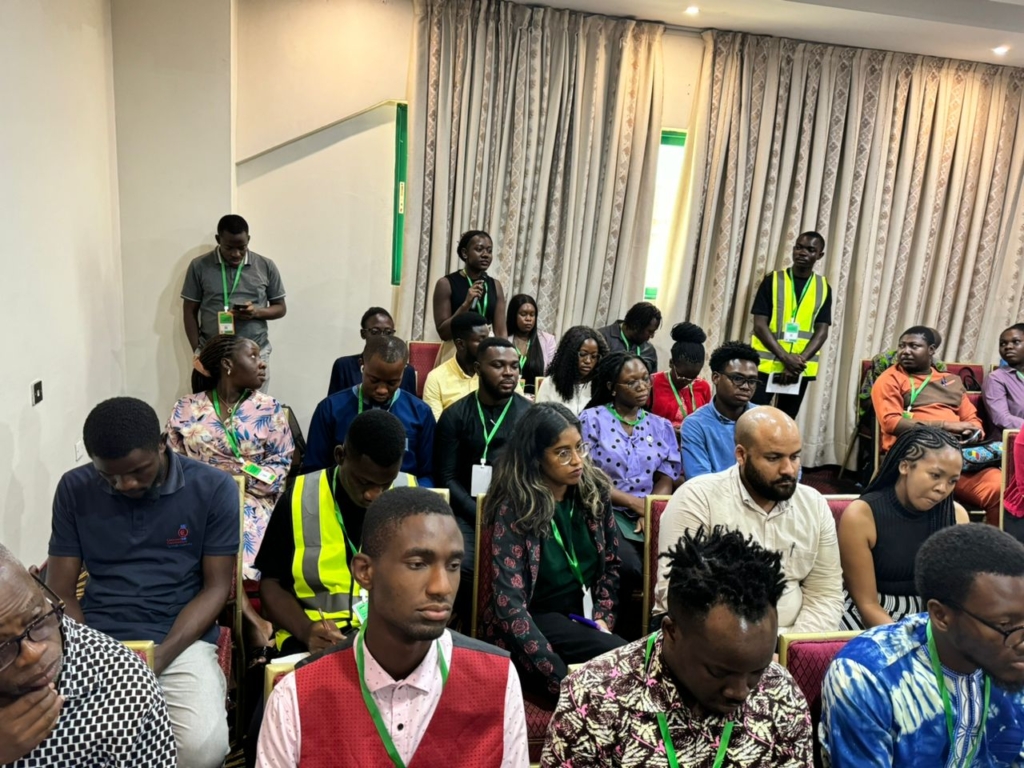Experts have emphasized the importance of humans leveraging their distinct attributes such as intuition, reasoning, and memory to maintain relevance in the evolving landscape of artificial intelligence.
They argue that by honing these skills, individuals can unlock their full potential and thrive in a world where both humans and machines coexist. They also state that humans, with their imagination and creativity, shape the future, highlighting the necessity for adaptation in the face of rapid change.
At the 11th Digital Rights and Inclusion Forum (DRIF24) in Accra, a fireside conversation hosted by the Public and Private Development Centre (PPDC) facilitated discussions among speakers from Nigeria, Ghana, South Africa, and Kenya. These discussions explored the potential of AI to drive local economic growth and enhance Africa's global standing, particularly in sectors like agriculture, job creation, and healthcare.

While there are concerns regarding AI potentially replacing human labor, speakers at the forum agreed that it presents an opportunity for humans to focus on higher-level thinking, reasoning, and professional pursuits.
President of IOT Network Hub - Africa, Joshua Opoku Agyeman, emphasizes the importance of humans tapping into their imagination, intuition, and reasoning abilities, which machines lack, to maintain a competitive edge over AI tools.
“The future we are looking at is created by humans - it was created through our imagination. The more we can be human, the more we have a role to play in the future. We have imaginations, machines don't have that and they never have imaginations. It is a tool we have to start exercising. We have intuition - machines will never have intuition no matter how intelligent they are,” Joshua indicated.
Joshua further said that humans possess the capacity to envision and construct a better world, a capability that enables them to create AI tools and ensures their enduring relevance in the world.
“Humans have reasoning, machines don't have. They might be able to crack data, but it doesn't mean they are thinking because they have that ability to do it. We have memory capacity - we collect data with our senses, our eyes, ears, and everything and if we can develop this innate ability of ours, we are going to be better than machines. We also have perception - our perception is always going to change things for us.”
He emphasizes that humans are inherently the species best equipped for survival, noting that throughout different generations, various technologies have emerged, yet humans have consistently adapted and thrived.
"Humans have a tendency to become addicted to things due to our brain's wiring, and this addiction can escalate with repeated practice. As we move forward, our world will be shaped by the Internet of Things, where everyday objects - from shoes to glasses - will be connected to the internet, collecting data and influencing our lives," he said.

Joshua emphasizes that the new world ahead will bear little resemblance to the current reality, urging Africans to embrace this transformation. He highlights that individuals' willingness to adapt will play a pivotal role, as some will eagerly adopt new technologies while others may be more cautious or resistant.
Regarding emerging technologies like AI, Joshua underscores that humans do not have the luxury of choice; rather, it's a revolution that will profoundly shape their future.
Addressing the responsible use of AI, Sani Suleiman from the Paradigm Initiative emphasizes that there is ample opportunity for all in the realm of AI. He stresses the importance of engaging all relevant stakeholders in the development of AI policies and regulations.
Sani highlights that companies are actively constructing infrastructure and offering extensive support for AI, emphasizing the necessity for investment in Africa to enable participation in the global AI revolution.
He further points out that the data barrier presents a significant challenge for the advancement of artificial intelligence in Africa, stressing the importance of addressing this issue.
Latest Stories
-
Inter want Inzaghi to stay despite record final defeat
3 hours -
Barcelona in talks over free transfer swoop for Arsenal’s Thomas Partey
3 hours -
Man Utd confirm deal for Wolves’ Cunha
3 hours -
Two dead and hundreds arrested in France after PSG Champions League win
4 hours -
Three dead after fire in elderly ward at Hamburg hospital
4 hours -
Heartbreak as cash-strapped Nigerians abandon their pets
4 hours -
Mining in Motion: African leaders arrive in Ghana for landmark industry summit
5 hours -
Trump’s tariffs ‘not going away’ as deadline for deals loom, top adviser says
5 hours -
MTN Ghana honours community champions at 2025 Heroes of Change Awards
5 hours -
Ensuring sanity in the professional practice space – supporting our regulatory councils
7 hours -
UK backs Morocco’s autonomy plan for Sahara as credible basis for resolution, pledges support at all levels
7 hours -
Pyramids beat Sundowns to win first-ever CAF Champions League title
8 hours -
Pyramids FC win CAF Champions League following 2nd leg victory over Sundowns
8 hours -
Pyramids FC clinch first CAF Champions League title with victory over Mamelodi Sundowns
8 hours -
Nations FC cite “poor officiating” and “security lapses” as reasons for abandoning Basake Holy Stars match
8 hours

